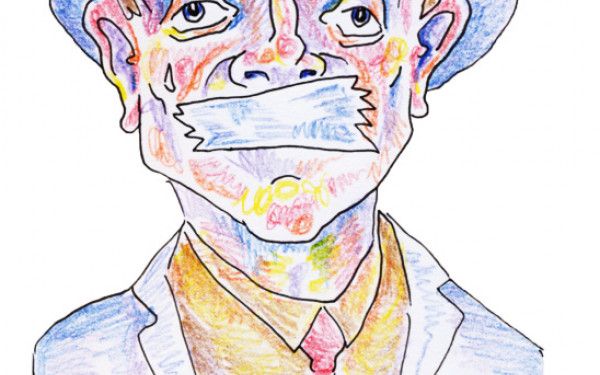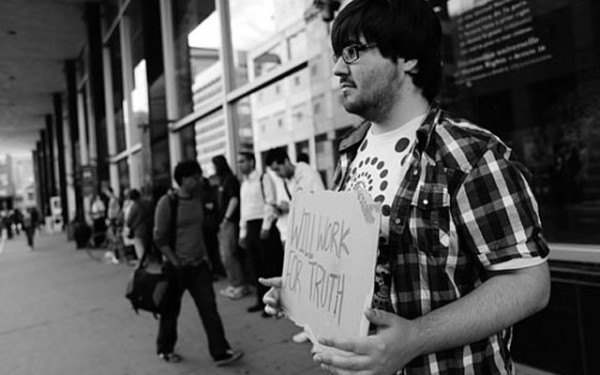Gag Order
Why Activists Shouldn’t Engage in Self-Censorship
The student-led movement against tuition hikes in Quebec is set to take a turn that is both hypocritical and quasi-fascist.
Student unions from across the province will soon vote on whether they will allow themselves to speak publicly about the specific tactics used by students in their fight.
The motion, drafted by a collection of student groups in Quebec, would prohibit all signatories from commenting on the actions of anyone trying to quash the impending fee-hikes.
If someone throws a smoke bomb into a school, for example, or smashes the windows of a government building, no single student representative would be able to speak out against it.
To be clear, the type of controversial behaviour I’m talking about here involves either physical violence or property damage. I’m not talking about actions like peaceful occupations or hanging banners, which, though they may be illegal, are not destructive in nature.
Notwithstanding individual actions, isn’t it curious that a movement advocating access to education as a human right is simultaneously defending censorship? Evidently, not everyone thinks so. The what is the value of such a self-imposed gag rule?
Some argue that it provides a safeguard against infighting, thus strengthening the solidarity between potentially disparate forces. This might be true, but it also prevents people from denouncing actions that they judge to be truly deplorable, should such actions occur.
In this light, is duct tape really the best tactic for activists to achieve their end goals? I think not.
By standing idly by and not condemning behaviour which they would never undertake themselves, activists convey a message to the unengaged public that violence and property destruction is a tactic of the whole movement, and not just one of a fringe element. The gag order would bring everyone down to the level of the lowest tactics employed in the name of tuition-hike freezes, whatever those end up being.
The message this sends is only amplified by many in the media who are hell-bent on the most exciting aspect of a story, which, frankly, is never the true meaning of the protest, but always the Black Bloc and the windows they smash.
And you know what? I don’t fault those in the media for their tendency to focus on the extreme—over the years, for better or for worse, the mandate to report on things that are in the public interest has increasingly become a preference to report on things that will interest the public.
Nevertheless, those fighting for change need to play by life’s unwritten rules or forever relegate themselves to the back-burner of public discourse.
To get people on their side—which should be the goal of anyone who claims to embrace democracy—activists must engage in publicly acceptable behaviour, and, if necessary, disavow ill-advised violent shenanigans.
When the Concordia Student Union votes next month on whether to gag themselves or be free, let’s hope they make the right choice—one that allows them to be a strong voice for the many rather than the hostages of a few.


_600_832_s.png)




